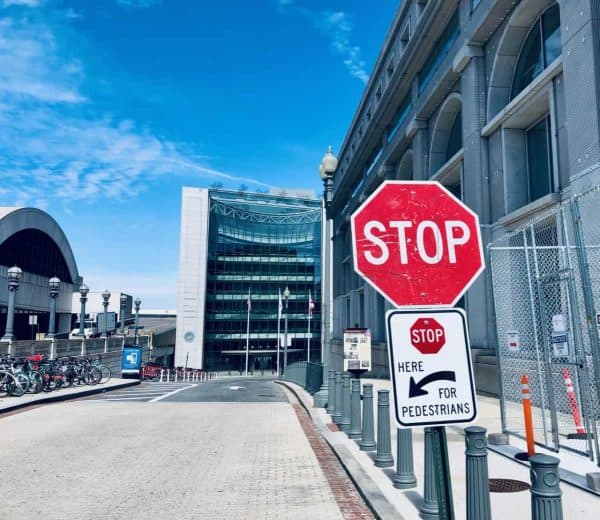
Several weeks back, the SEC Small Business Capital Formation Advisory Committee (SBCFAC) met and discussed secondary transactions for securities issued under Regulation A (Reg A+) as well as Reg CF. Private securities must adhere to various rules for investors to sell a holding creating hurdles for individuals to cash out when they desire.
Reg A+ is an exemption that allows issued securities to trade on an exchange or marketplace immediately following an offering – a unique quality in the land of private offerings. This, on top of a funding cap of $75 million, has helped to boost the popularity of the exemption for early-stage firms to raise growth capital. Issuers are required to submit an offering circular to the SEC which must be qualified, thus entailing a good amount of disclosure prior to an offering. Some have described Reg A+ as a mini-IPO type offering due to the disclosure mandates.
Reg A+ was part of the JOBS Act of 2012 when Congress recognized the old version of the exemption was dead in the water. No one used the original Reg A as better options existed – like Reg D. To rectify this shortcoming, Congress removed individual state review (Blue Sky laws) from Reg A – a costly and cumbersome endeavor for issuers, while incorporating other enhancements. What Congress forgot to complete, was to remove the same type of state review for secondary trading. Clearly, that was the intent of Congress but then legislation is not always perfect, as we know all too well.
At the beginning of the SBCFAC meeting in August, SEC Commissioner Hester Peirce referenced the challenges with secondary trading in Reg A+ shares (as well as Reg CF). Her statement noted that improving liquidity, or secondary trading, is a key variable to improve investor protection. To quote the Commissioner’s statement:
“As the Commission staff noted in a recent report, “[m]ost [Regulation A] issuers do not have a liquid secondary market for their securities, which can make it difficult for investors to sell their investment quickly without a loss of value.” The same is true for Reg Crowdfunding [Reg CF] issuers. So today, this committee is shining a spotlight on secondary market liquidity in shares sold through these types of offerings.”
She added that a secondary market benefits investors, who want to lock in gains or move their money to other opportunities. In brief, secondary trading can “protect retail investors and help small companies grow.”
During the SBCFAC meeting, Ryan Feit, CEO and co-founder of SeedInvest, told the Committee that “Reg A issuers should be preempted for secondary trades as long as they’re current in their ongoing reporting.” Feit noted that investors may be sitting on investments that have paper gains but they have no opportunity to realize these gains. “This is a huge problem,” said Feit.
Joan Adler, a securities attorney active in exempt securities offering at Ellenoff, Grossman, and Schole, echoed Feit’s sentiment, “we need to make easier the venues, the ATS venues, for them to conduct these transactions.” Adler noted that while much effort has been focused on raising capital under the JOBS Act exemptions … little attention has been paid to how you get out.
Andrea Seidt, a non-voting member of SBCFAC and representative of the North American Securities Administrators Association (NASAA) was the one presenter who was not supportive of improving liquidity for investors in private securities. Seidt called registered secondary sales a “danger zone” pointing to her opinion that there were investor protection concerns. Approving secondary trading of Reg A+ securities would also limit some of NASAA members’ influence in regard to these securities.
Following an in-depth discussion, the SBCFAC voted on recommending the Commission allow state pre-emption for securities issued under Tier 2 of Reg A+. The Committee skipped over Reg CF, perhaps, saving the issue for another date.
Earlier this month, the SBCFAC’s formal recommendation to the SEC was posted online. The brief statement told the Commission:
“… the Committee recommends that the Commission, on a pilot basis, provide federal preemption from state regulation for secondary sales by investors of securities initially sold pursuant to Tier 2 of Regulation A.”
As suggested by Feit, only firms current in their reporting should receive permission to trade.
Only a single voting member, Robert Fox of Grant Thornton, declined to support the recommendation.
The request by the Committee is a minor step in the right direction and has the backing of just about all Committee members, some with direct experience in the securities crowdfunding sector. But while the proposal may be investor friendly, providing an additional degree of investor protection, chances are slim that the current Commission will listen to the Committee. The most likely outcome is that politics will trump experience and common sense and the Commission will file the SBCFAC recommendation on top of the growing pile of good advice issued by the Committee which is quickly ignored by current SEC leadership.
The SBCFAC letter on Reg A+ secondary trading is available here and viewable below.

